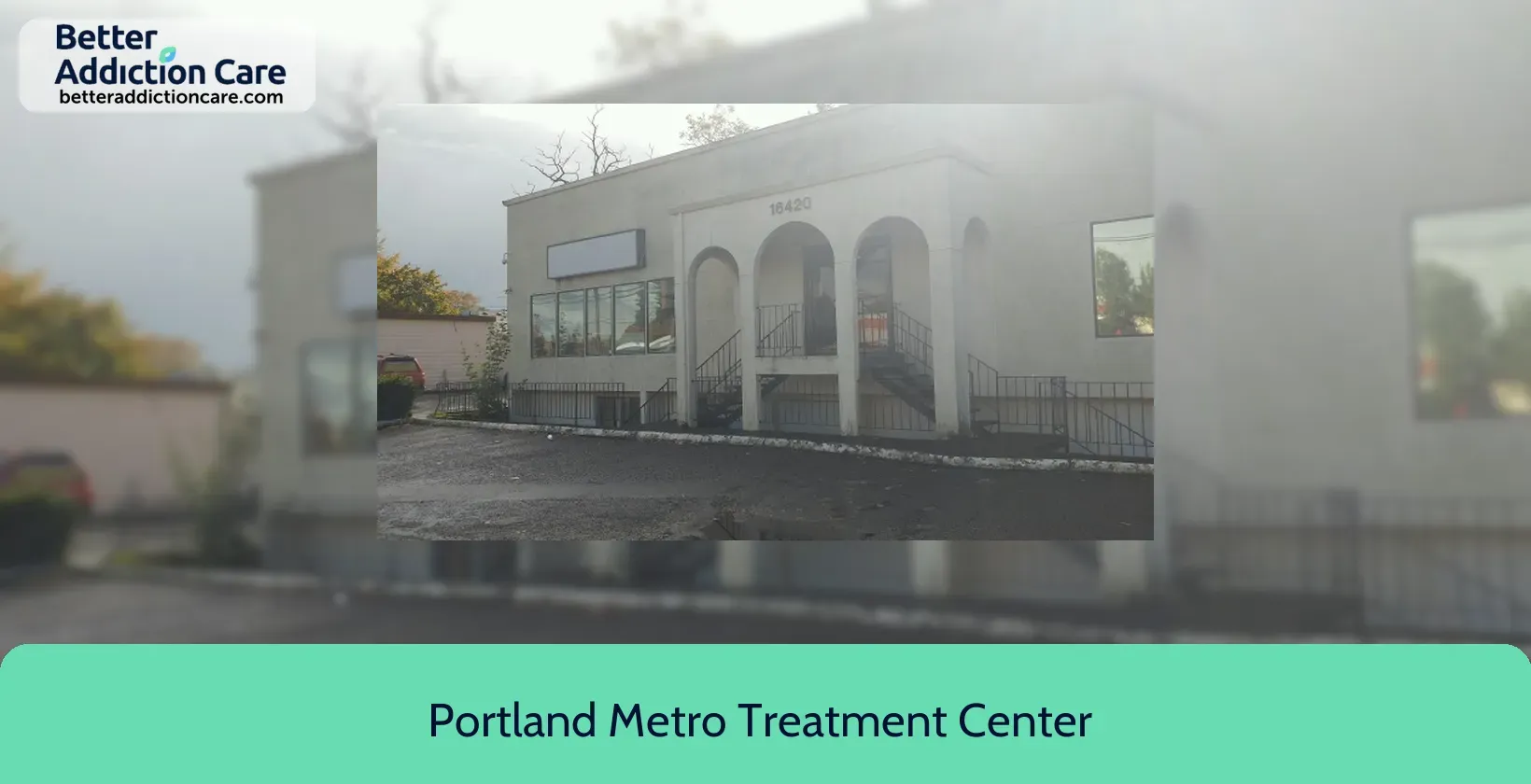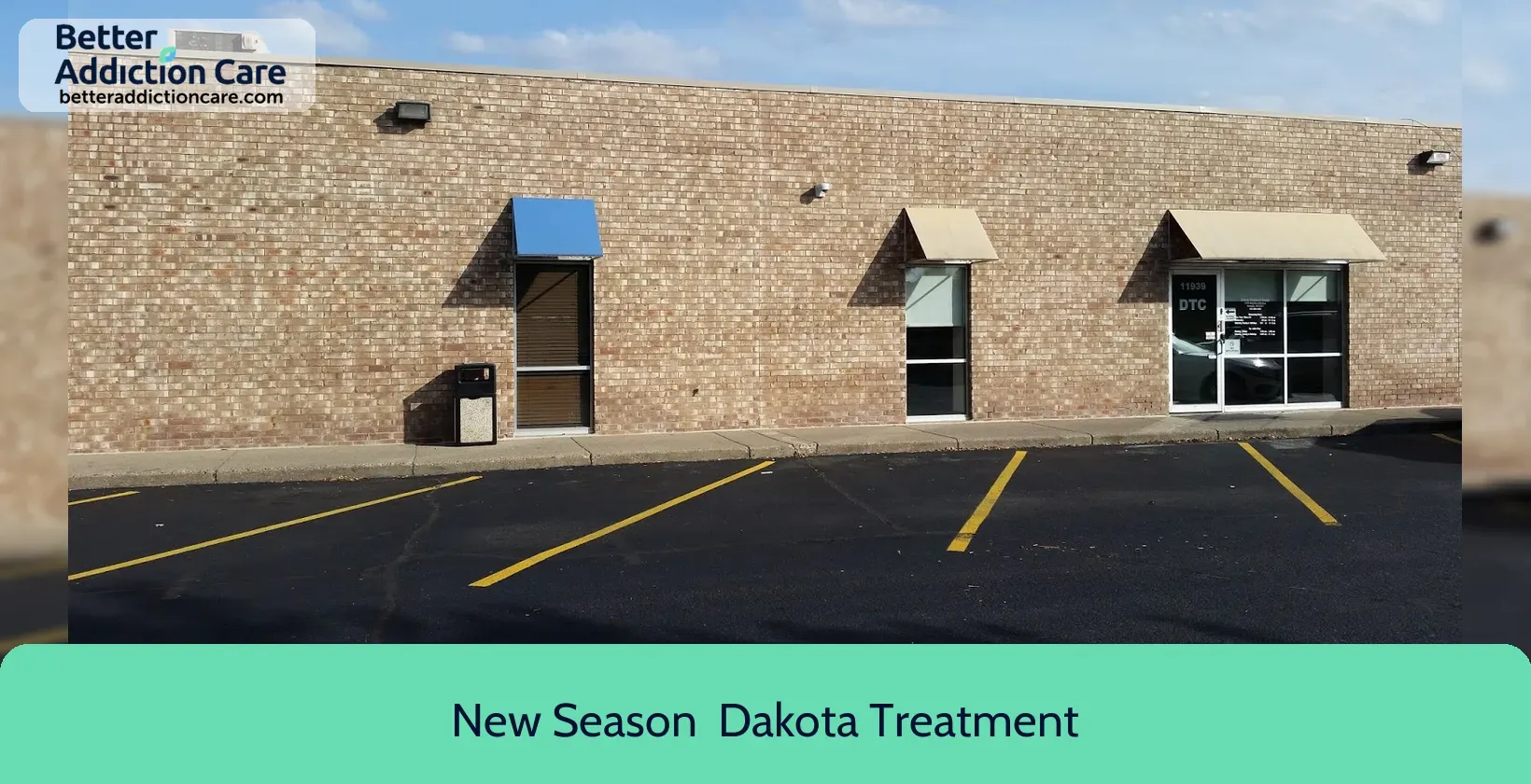Portland Metro Treatment Center - New Season
Overview
New Season – Portland Metro Treatment Center is an opioid addiction and recovery facility located in Portland, Oregon.
New Season offers Medication-Assisted Treatment (MAT), which includes both medication and counseling. The doctor may prescribe methadone, buprenorphine, or Suboxone®. The medication-assisted treatment program offers FDA-approved medications to reduce the potential for drug misuse, alleviate physical symptoms, and curb cravings. Each treatment plan, including both medication and counseling, is personalized to meet the specific needs of each patient.
Patients may receive individual, group, and family therapy, medically supervised withdrawal, medical examinations, and referrals. The program also focuses on understanding the reasons behind addiction, identifying triggers, and establishing a relapse prevention plan.
New Season – Portland Metro Treatment Center maintains accreditation from the Commission on Accreditation of Rehabilitation Facilities (CARF), reflecting its commitment to maintaining high standards of care and treatment excellence.
Portland Metro Treatment Center - New Season at a Glance
Payment Options
- Cash or self-payment
- Medicaid
- Private insurance
- Daily
Assessments
- Screening for tobacco use
- Comprehensive substance use assessment
- Outreach to persons in the community
- Screening for mental disorders
- Screening for substance use
Age Groups
- Young adults
- Adults
Ancillary Services
- Case management service
- Early intervention for HIV
- Mental health services
- Social skills development
- Transportation assistance
Highlights About Portland Metro Treatment Center - New Season
7.10/10
With an overall rating of 7.10/10, this facility has following balanced range of services. Alcohol Rehabilitation: 8.00/10, Drug Rehab and Detox: 7.54/10, Insurance and Payments: 6.00/10, Treatment Options: 6.85/10.-
Alcohol Rehabilitation 8.00
-
Drug Rehab and Detox 7.54
-
Treatment Options 6.85
-
Insurance and Payments 6.00
Accreditations
State department of health:

State Licenses, issued by government agencies, authorize rehabilitation organizations to legally operate within designated geographical areas. The specific licenses required for operation are typically determined by both the nature of the rehabilitation program provided by the facility and its physical location.
Commission on Accreditation of Rehabilitation Facilities (CARF):

Established in 1966, the non-profit organization known as the Commission on Accreditation of Rehabilitation Facilities (CARF) has a dedicated focus on accrediting rehabilitation organizations. CARF's primary mission is to assist service providers, particularly rehabilitation facilities, in upholding and promoting the highest standards of care.
Council on Accreditation (COA):
The Council on Accreditation (COA) is a non-profit that provides accreditation to human services organizations to ensure they meet high standards in service delivery. The accreditation process involves evaluating the organization's policies, practices, and services to meet specific standards.
SAMHSA:
SAMHSA's Opioid Treatment Programs (OTPs) accreditation is a rigorous recognition process that signifies an OTP's commitment to providing high-quality care for individuals dealing with opioid use disorders. It assures patients, families, and the community that the program adheres to evidence-based practices, employs qualified staff, and maintains a safe treatment environment. This accreditation is a symbol of quality and accountability, offering confidence in the program's ability to support individuals on their path to recovery from opioid addiction.
Treatment At Portland Metro Treatment Center - New Season
Treatment Conditions
- Substance use treatment
- Alcoholism
- Opioid Treatement
Care Levels
- Outpatient
- Outpatient methadone/buprenorphine or naltrexone treatment
- Intensive outpatient treatment
- Regular outpatient treatment
- Detoxification
Treatment Modalities
- Substance use disorder counseling
- Smoking/vaping/tobacco cessation counseling
- Group counseling
- Family counseling
- Motivational interviewing
Ancillary Services
Additional Services
- Pharmacotherapies administered during treatment
- Mentoring/peer support
- Breathalyzer or blood alcohol testing
Special Programs
- Clients with co-occurring mental and substance use disorders
- Veterans
- Active duty military
- Members of military families
- Criminal justice (other than DUI/DWI)/Forensic clients

Additional Locations
Get Help Now
Common Questions About Portland Metro Treatment Center - New Season
Contact Information
Other Facilities in Portland

7.17

6.56

6.74

6.62

6.92

7.30

7.07

7.60
DISCLAIMER: The facility name, logo and brand are the property and registered trademarks of Opiate Treatment Program - VA Portland Healthcare System, and are being used for identification and informational purposes only. Use of these names, logos and brands shall not imply endorsement. BetterAddictionCare.com is not affiliated with or sponsored by Opiate Treatment Program - VA Portland Healthcare System.


